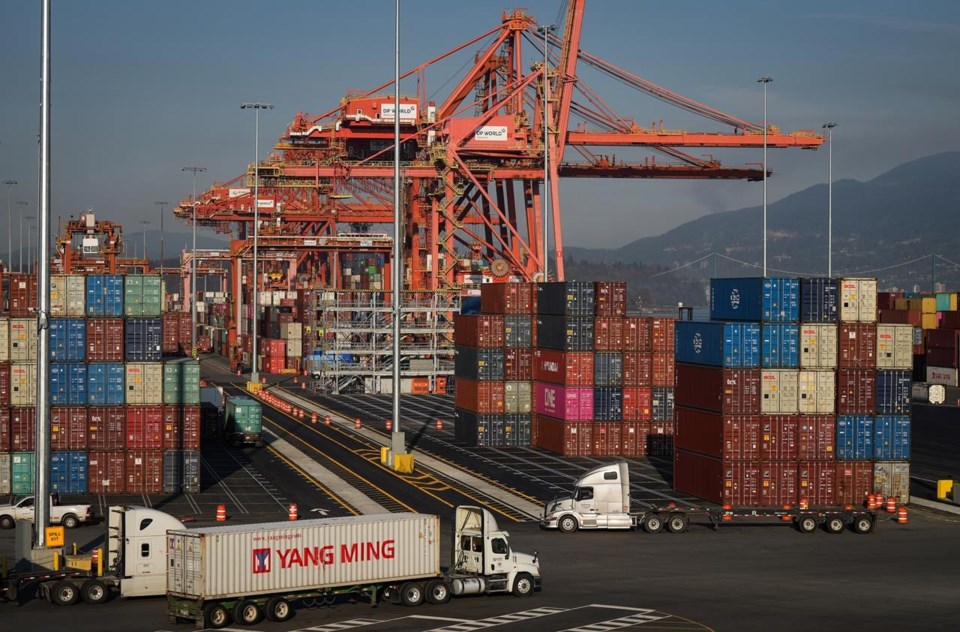Shipping container prices continue to fall, but persistent port congestion and labour shortages could bring the decline to a halt, experts say.
Shipping container prices from Asia to the West Coast of North America have fallen 67 per cent since April, but remain 111 per cent higher than in 2019, said Judah Levine, head of research at Freightos.
As it stands, a shipping container from China to the Pacific coast is around $2,700, according to the Global Container Freight Index by Freightos, a global trade booking platform.
While container prices continue to fall, in part to a shift in consumer demand, persistent congestion could slow the decline, especially on the East Coast, said Levine.
Greg Northey, vice president of corporate affairs at Pulse Canada,said that lower consumer demand has shipping lines beginning to draw back capacity, that could challenge the declining rate.
Many global supply chain delays and disruptions are a direct result of congestion, outdated infrastructure and labour shortages throughout the supply chain, said Ester Gerassime, economic analyst for the Ontario Chamber of Commerce.
In 2021, freight prices peaked up to 10 times over 2019 rates, as high consumer demand and port congestion led to an extreme hike, said Levine.
High container prices had a particularly negative effect on farmers, said Northey, as supply chain issues have impacted basics such as tires and equipment.
“It’s such an important issue to get this right on the container side," said Northey.
Provincial and federal governments must continue to strengthen infrastructure and support private sector efforts to ensure supply chain reliability, said Gerassime.
In September, a report from the National Supply Chain Task Force revealed two key supply chain problems for container services.
The report focused on improving container operating systems, reducing port congestion, through policy changes or regulation, and improving competition.
This report by The Canadian Press was first published Oct. 19, 2022.
Caitlin Yardley, The Canadian Press



